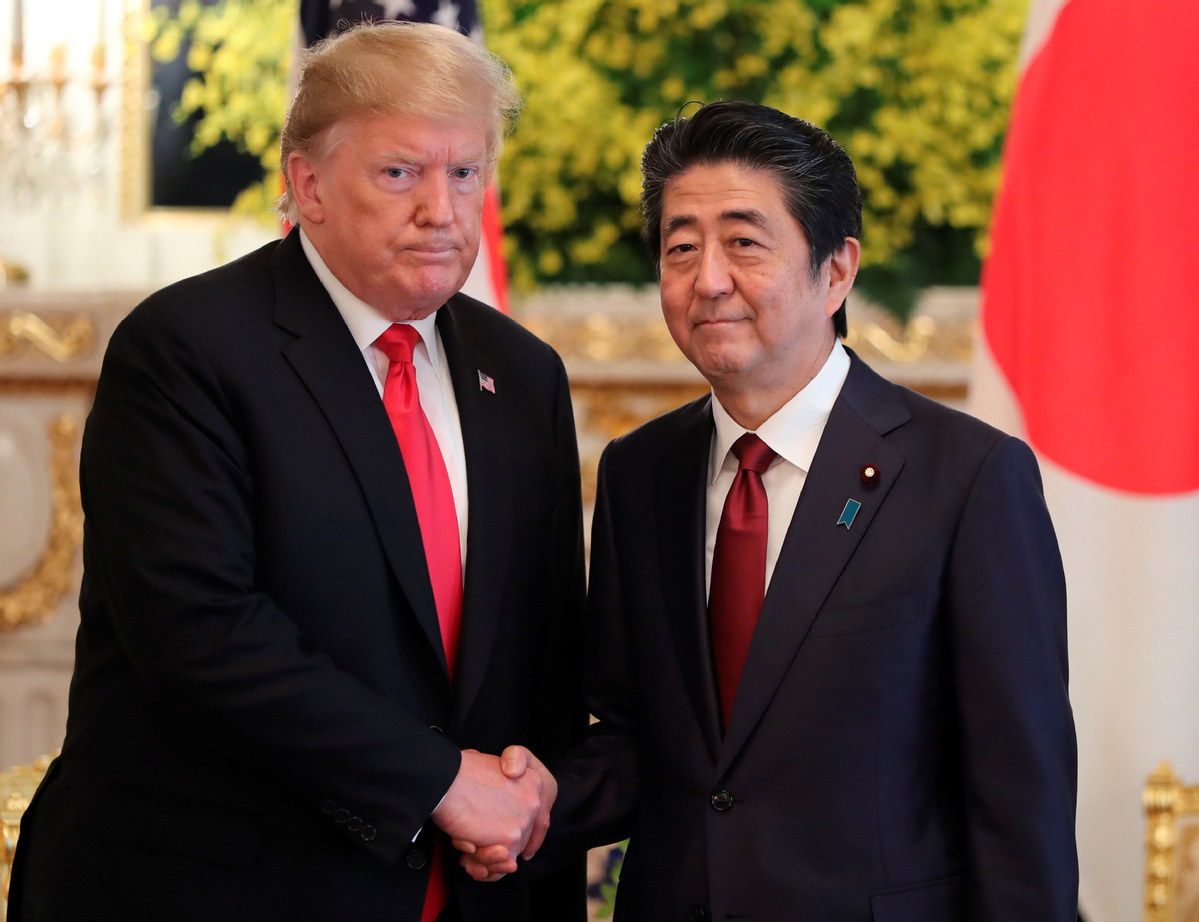Hospitality not a sign of harmony and consensus: China Daily editorial
chinadaily.com.cn | Updated: 2019-05-27 21:25

A merry round of golf, capped by a sweet selfie for two that went viral online, followed by double cheeseburgers made with American beef. Ending with the awarding of the Made-in-America United States President's Cup, at a meticulously arranged sumo show that was "really great".
And, most important of all, the precious opportunity of becoming the first foreign dignitary to be received by the new Japanese emperor. From the minute he arrived in Japan on Saturday for a four-day state visit, United States President Donald Trump has been indulged with a series of high-profile shows of cordiality on both the personal and government levels.
His host, Japanese Prime Minister Abe Shinzo, has made no secret of his desire to highlight the strength of the Japan-US alliance. Abe is believed to have cultivated a close personal bond with the current US president, which has allegedly protected Tokyo from harsh blows amid Washington's recent moves to reshape trade ties.
While much of the Trump visit can be viewed as symbolic, he certainly did not come just for that. There is the Democratic People's Republic of Korea. There is Iran. And, above all that, Trump's obsession with the US trade imbalance with Japan.
To the surprise of many, Trump changed his tune on Iran, expressing support for Abe's plan to talk with Teheran. Then, as he has done lately, spoke softly on the DPRK and its leader, endorsing the latter's ridiculing of Joe Biden, the potential Democratic Party presidential candidate.
On global issues of common concern, even on trade, Washington and Tokyo may produce high-sounding joint documents enumerating principled consensuses. But that might be as far as they can go before discussions reach the specifics of bilateral trade.
Trump has threatened Tokyo with potentially devastating tariffs on Japanese autos and parts. And he wants to have the issue settled quickly, "probably in August", he tweeted. But if he was serious about that deadline, he might be disappointed.
Not that the countries' negotiators can't come up with anything to illustrate progress. After talking with US Trade Representative Robert Lighthizer on Saturday, Japanese Economy, Trade and Industry Minister Toshimitsu Motegi said, "We deepened our understanding of each other's positions on trade. However we're not in complete agreement."
He said he did not expect a total, or even partial deal to be reached at Monday's summit. Given the sticky nature of US-Japan trade negotiations over the past decades, the "complete agreement" that suffices for solving what Trump terms as "a balance sheet thing" may take more bargaining than Trump expects.
























